Making Galak-Z: a day in the life of an indie studio in Kyoto, Japan
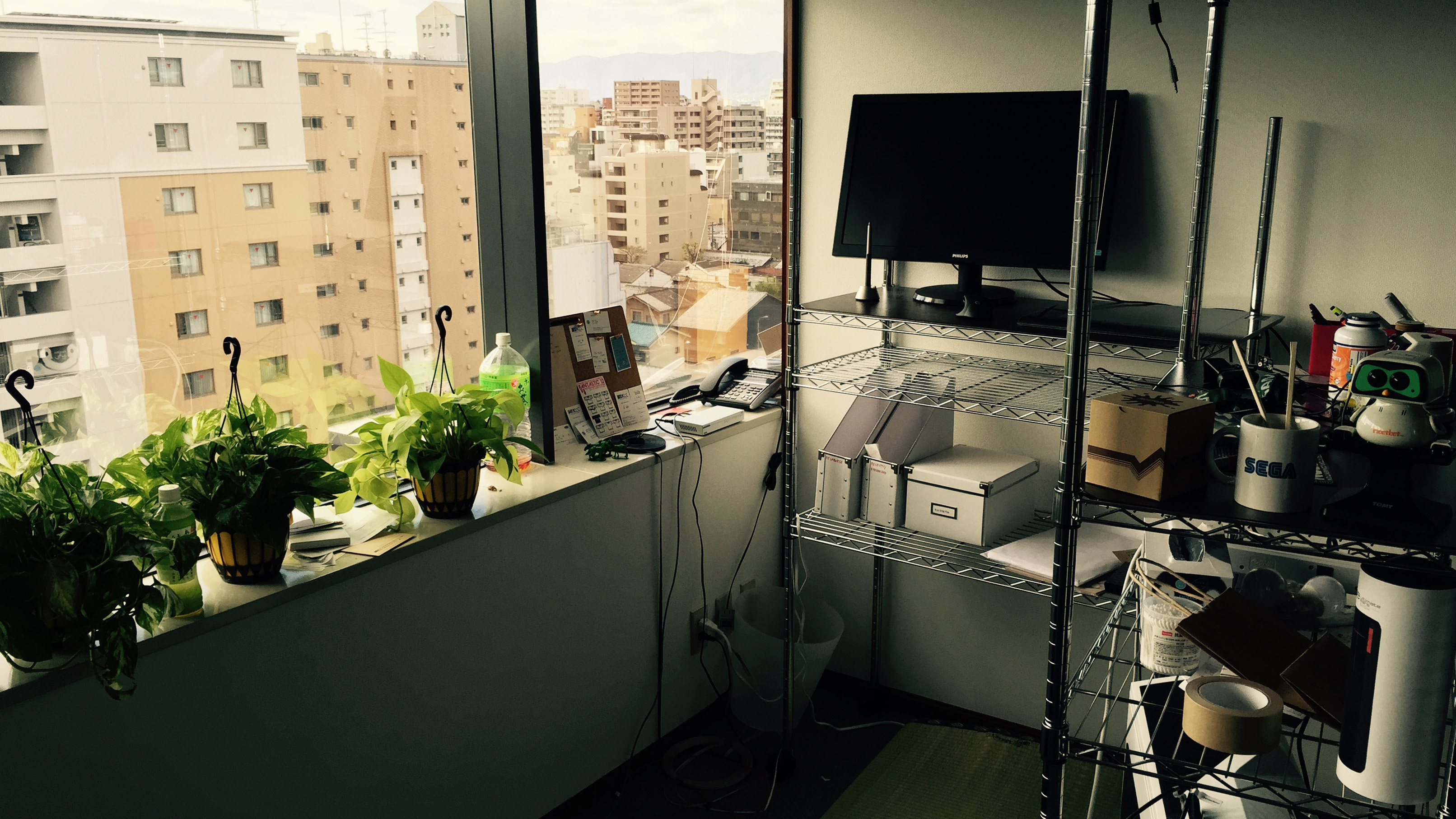
17-Bit goes to Kyoto
17-Bit's full-time staff of eight is split between Seattle and Kyoto, where Kazdal has opened up his new small office as an incubator. He plans to upgrade to a larger space when the rest of the team move over. Until Galak-Z is finished, they'll continue working as two separate offices. When the work day is over in Seattle, it's 10 am in Kyoto. Since moving, Kazdal has been badgering his Seattle team for changes in the evening as he plays the latest builds. He says he'll play all weekend and come into work on Monday to yell about everything broken in the latest build.
You can imagine Kazdal yelling. He's burly, especially in Kyoto, where he's taller than most people on the street. But he's also quick to laugh and always seems to have a story perfect for the moment at hand, plucked from a rolodex of enviable memories. It's easy to picture his yelling as more bluster than bite; he just seems to be having so much fun, all the time.
Maybe that's because he's in Japan.

"I've been planning to move back since I left 11 years ago," Kazdal says. He moved to Japan in the 80s and worked in the games industry until 1993. He came back in 1999 and worked at Sega until 2003, where he was an artist (he got the job after an E3 dinner with Tetsuya Mizuguchi, where they talked about their dream game inspired by the concert sequence in Macross Plus. That game was Rez). Kazdal was in awe of the design skills of the team he worked with on Rez--the way they thought about games, beyond just art and animation chops. That pushed him to leave Sega in 2003 to go back to design school in Los Angeles to be a concept artist.
"I ended up getting pulled into the Steven Spielberg project at EA, which I couldn't say no to. LMNO. I worked on that for a couple years. Even then, I was like how can I get back to Japan, how can I get back to Japan. I interviewed at a couple places, but for one reason or another it wasn't destined to be just yet. Upon starting my own company, I was like, I know what I'll do, I'll start my own company, and if it's at all successful...it would be the perfect excuse to just come over here on my own terms and just work the job I want to work on, the projects I want to work on, build the team I want to build."
Being back in Japan is the payoff for 11 years of waiting for both Kazdal and his wife, who is Japanese. Kazdal may not be from Japan, but it is clearly home to him. And not just Japan, but Kyoto. Kyoto is special.
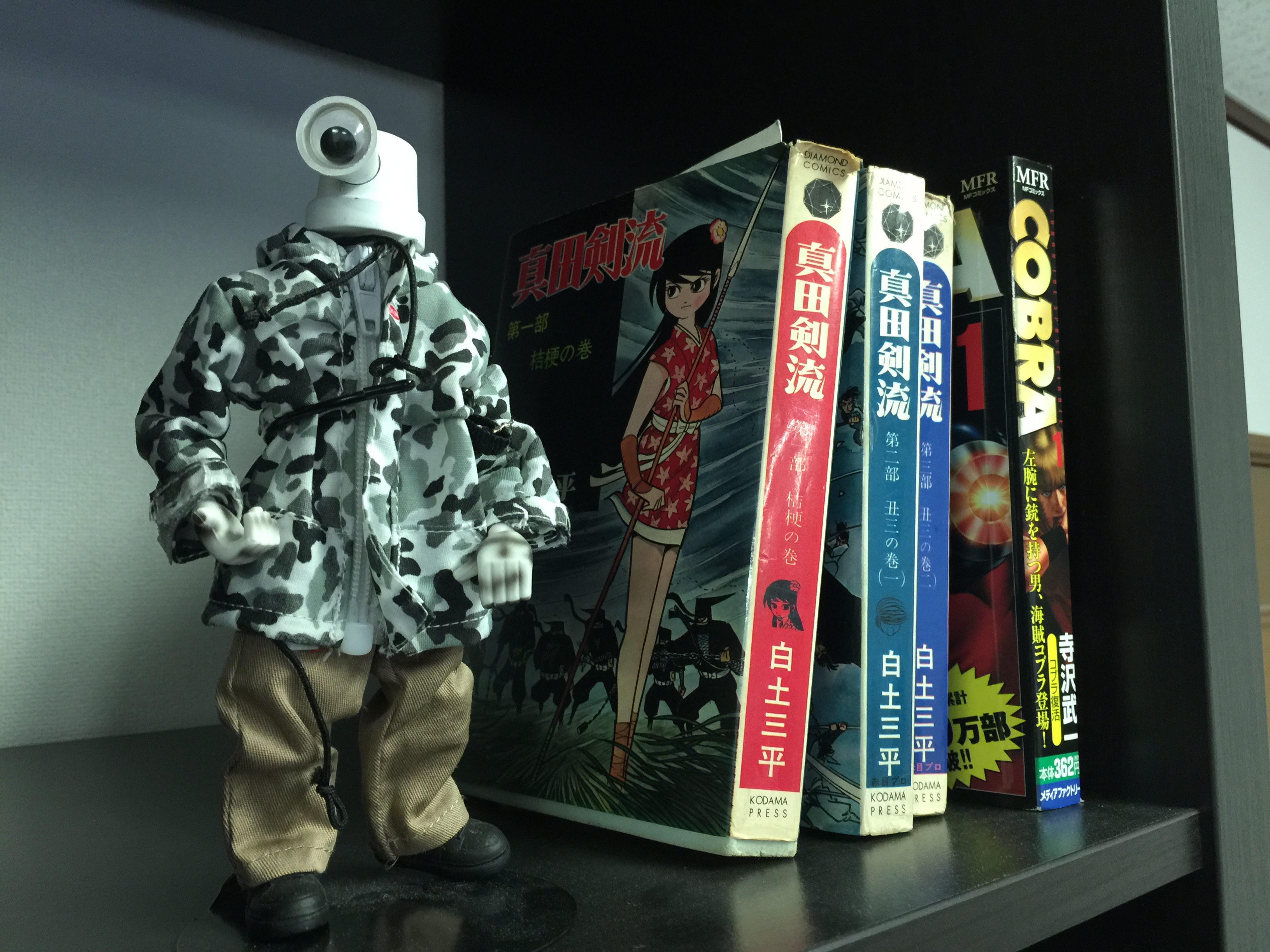
"Just being here, being around so much more game culture is priceless to me," he says. "I'm really into classic manga and classic anime, ’60s ’70s and ’80s stuff. There's tons of used bookstores and comic shops. I can just go buy this mid-century Japanese illustration that I'm super in love with that's really hard to come by in the states. There's just a really cool classic gaming culture ingrained here. Kyoto is the home of Nintendo. It's the home of video games in a lot of ways, especially the home video game movement, and a lot of those old school dudes are still around, and a lot of that energy is here. For a Nintendo nerd like me, it's kind of a mecca. It sounds super nerdy to say, but it makes a difference to be here, crossing paths with some of these people, getting to know some of these people."
Keep up to date with the most important stories and the best deals, as picked by the PC Gamer team.
Kazdal didn't only move to Kyoto to pray at the shrine of Nintendo, however. He and his wife thought about Tokyo—briefly. "My wife said no way," he says with a grin. Tokyo was too expensive, too familiar. They'd both spent years there. So they decided on Kyoto, where an American-sized house is affordable, and Kazdal can tweet photos of his unfairly scenic bike commute to work. Downtown Kyoto, where 17-Bit has its office, is modern and vibrant, but a 20 minute bike ride outside the city opens up into the idyllic countryside of a Ghibli film.
Everyone who joined 17-Bit knew that the move to Japan was going to happen sooner or later. First, it was supposed to happen earlier in development, but they delayed the move for financial reasons. Then it was supposed to come after Galak-Z shipped, and Kazdal promised his wife they'd be in Kyoto by September so their oldest son, five, could start school. Galak-Z was supposed to be finished by then, but it wasn't. It was delayed, as games often are, and pushed back into the first few months of 2015. So they committed to the move, rented a shipping container, threw away half of their worldly possessions, and waved goodbye to Seattle.
Now the team has to learn how to work around the time difference. While they're sticking together to ship Galak-Z, 17-bit won't be the same team when they start their next project.
"Everybody who did come in as an employee in the studio, I was crystal clear with: hey, sooner or later the company is moving to Japan," Kazdal says. "You can be in or out, but you need to understand that. Hopefully you'll come with me. Most people were in for awhile, and once we punted [on the first move] a couple guys have decided not to make the move. It's a scary move, if you haven't moved here before. I have a lot of friends and family here, I speak the language. But for somebody who doesn't have any history here, it's a much bigger commitment."
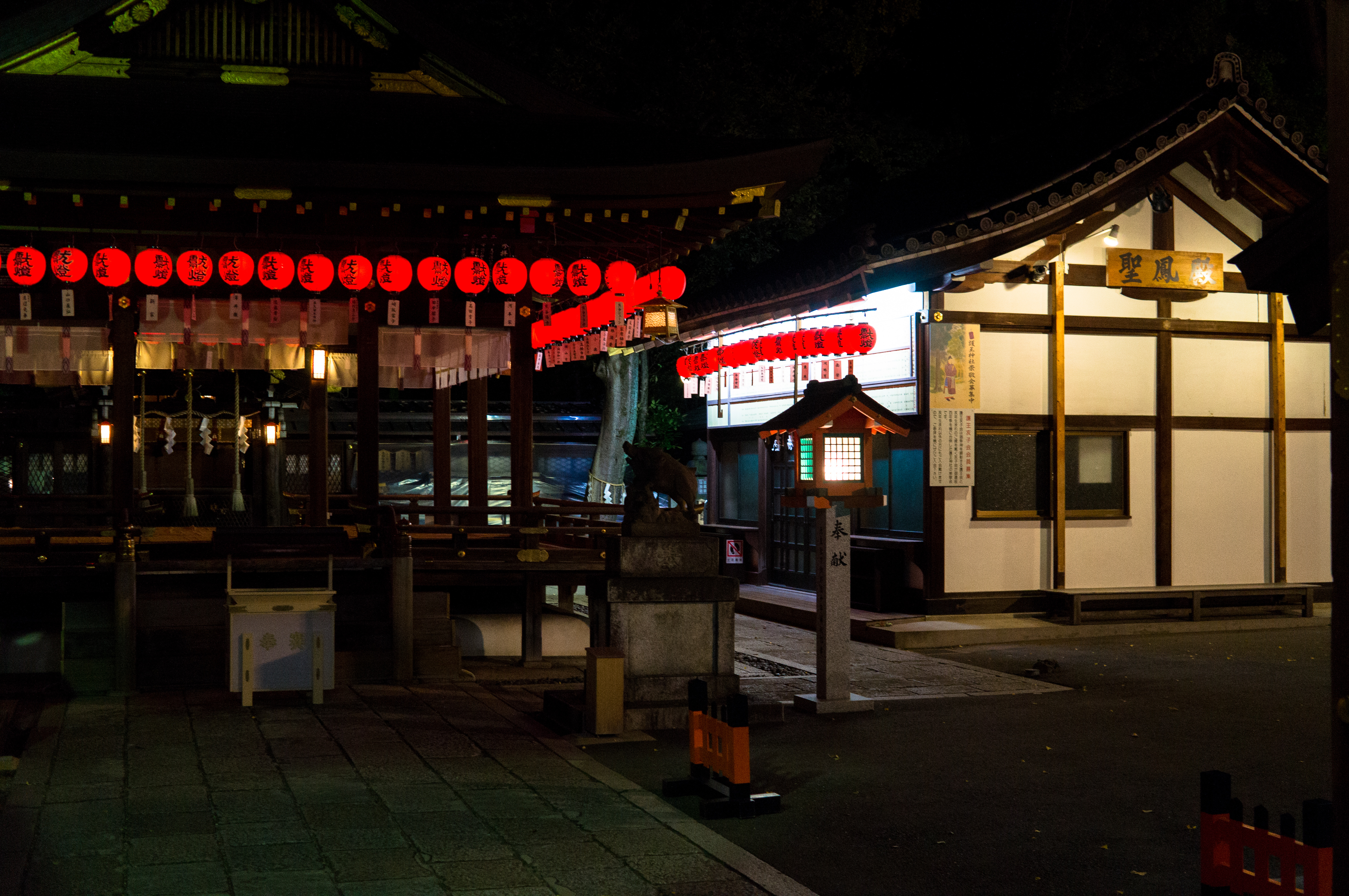
Kyoto nights
If you don't speak Japanese, it's hard to imagine uprooting your life and moving across the world to make video games. And some of the 17-Bit team who want to move may not be able to; Kazdal's immigration was easy, since his wife is Japanese, but getting a work visa can be a challenge. If I hadn't been to Kyoto, I'd think the idea was crazy. After spending only a few days there, I didn't. Part of me knows that it would be difficult and isolating to live there without speaking fluent Japanese. Mostly I don't care; I want to live in Kyoto, myself, desperately and irrationally.
Since leaving Kyoto, memories of the city flash randomly into my mind with a pang of loss. The ambiance of a city full of people riding bikes to work, lingering at slow-turning crosswalks, never seeming in a hurry to be anywhere. The rolling green mountains reaching across the horizon. The nightlife of a thousand bars and restaurants packed into a few narrow alleyways by the river. The temples, which contrast Kyoto's easygoing modernity with majestic history. The food. God, the food.
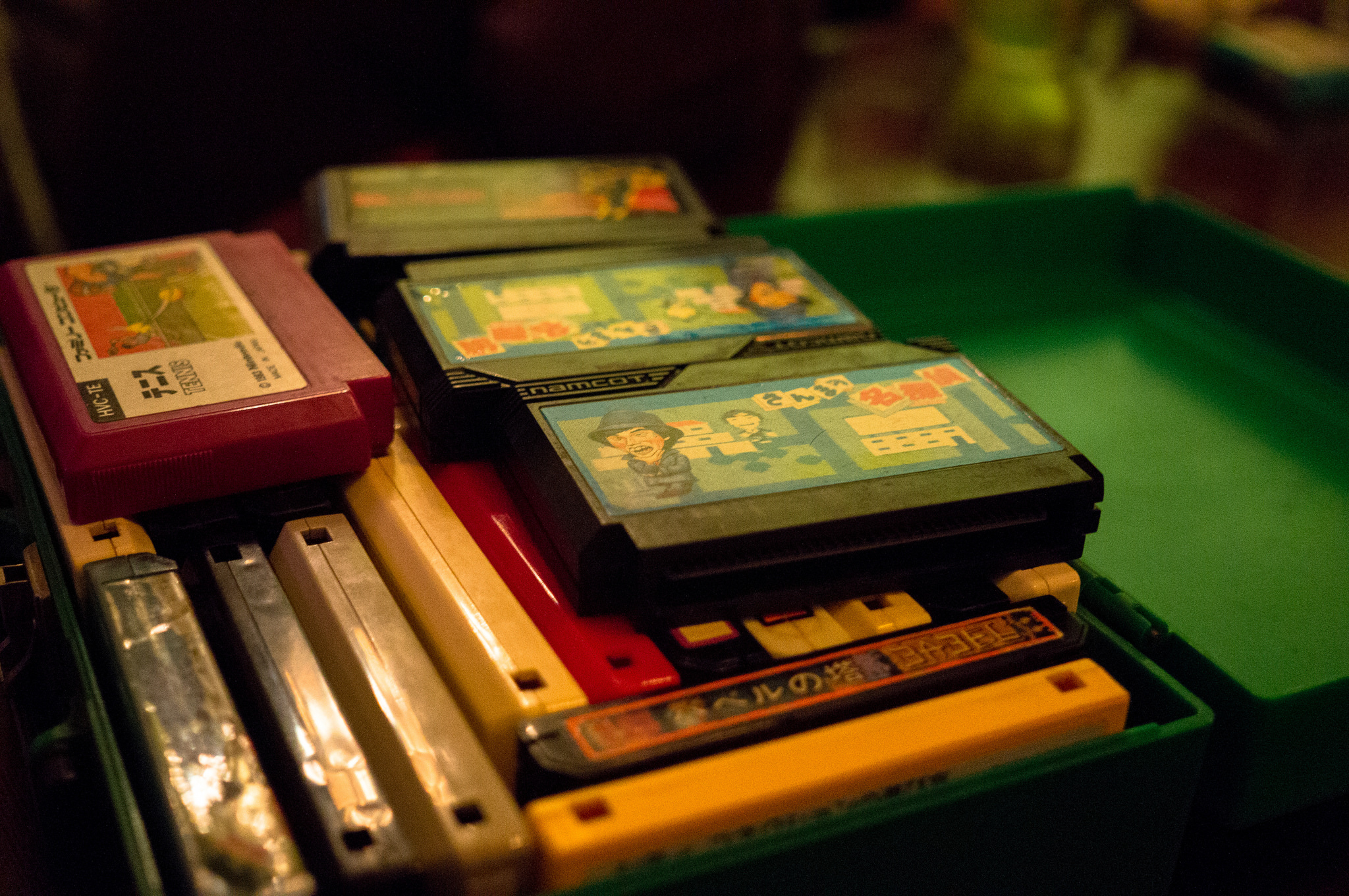
After an afternoon of playing Galak-Z, Kazdal and I walk through the dusk to meet up with two of his local friends and find sushi. We go to a conveyor belt place that he loves. One afternoon shortly after Kazdal set up the Kyoto office, an elderly Japanese man barged into the room, declared himself a Kyoto expert, and demanded questions. Kazdal asked for the best sushi place in the city. His advice was apparently solid. I gorge on eight plate of the best sushi I've had in my life. It costs $13.
Kyoto's nightlife comes alive as we walk streets barely wide enough for two people. Tiny stairwells lead to bars atop bars atop bars. In one with walls formed like a cave, we watch rap videos and drink bad lemon sours. In another, walls plastered floor-to-ceiling with music posters (I spy at least half a dozen Bob Dylans) we drink good lemon sours. We drink Goemon cocktails at the video game-themed bar Cafe La Siesta. Another friend of Kazdal's sits at the bar, watching Kyary Pamu Pamu videos on an iPhone and teaching a pair of Japanese girls how to say fuck and god damn in English.
Kazdal stops to take photos of alleys and promising restaurants, cheerily overwhelmed by the number of new places to visit. I could go to a new place every night for a year and still not try them all, he says, more elated than exasperated. This is the Kyoto he moved for. It would be inspiring even without Nintendo's headquarters or secondhand shops rife with classic manga and games.
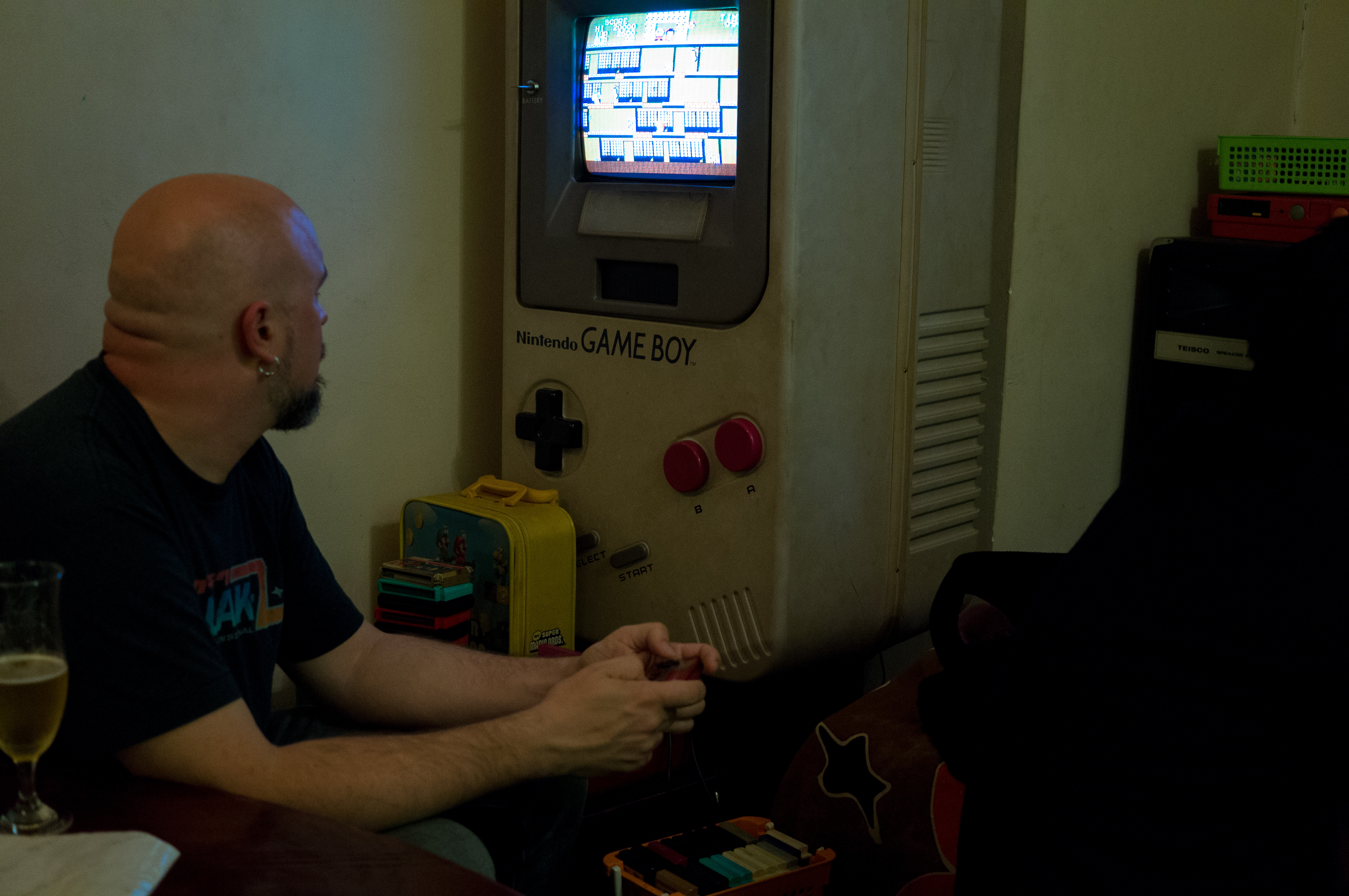
"Without sounding too dramatic, I'm probably never going to move back to the States," Kazdal says. "I love Kyoto. I think it's one of the most amazing cities to live in on the planet. I've lived all over the place, I've lived in lots of different cities, and nothing even comes close to Kyoto."
The move may have been a bump in the road for Galak-Z's development, but it seems to have been a small one, delaying rather than damaging. And it's hard to picture Kazdal living and working anywhere else. This is where he fits.
Galak-Z is an important game for 17-Bit—Skulls of the Shogun didn't sell well, despite universally positive reviews—but he says the studio is secure, even if Galak-Z isn't a giant hit. And in Kyoto lies a potential road to more sales—a Kazdal hopes to tap into the Japanese market that's been largely closed off to western games, designed for western audiences.
"I've been in the games industry since 1999," Kazdal says. "I worked at Nintendo during the NES years as a game counselor...All I know how to do is make video games. It's what I've done my entire adult life. So, come hell or high water, I'm going to be doing games somehow."
Photo credit: Mario sketch, the Cafe La Siesta menu, and the photos of 17-Bit's office courtesy of Jake Kazdal.

Wes has been covering games and hardware for more than 10 years, first at tech sites like The Wirecutter and Tested before joining the PC Gamer team in 2014. Wes plays a little bit of everything, but he'll always jump at the chance to cover emulation and Japanese games.
When he's not obsessively optimizing and re-optimizing a tangle of conveyor belts in Satisfactory (it's really becoming a problem), he's probably playing a 20-year-old Final Fantasy or some opaque ASCII roguelike. With a focus on writing and editing features, he seeks out personal stories and in-depth histories from the corners of PC gaming and its niche communities. 50% pizza by volume (deep dish, to be specific).

